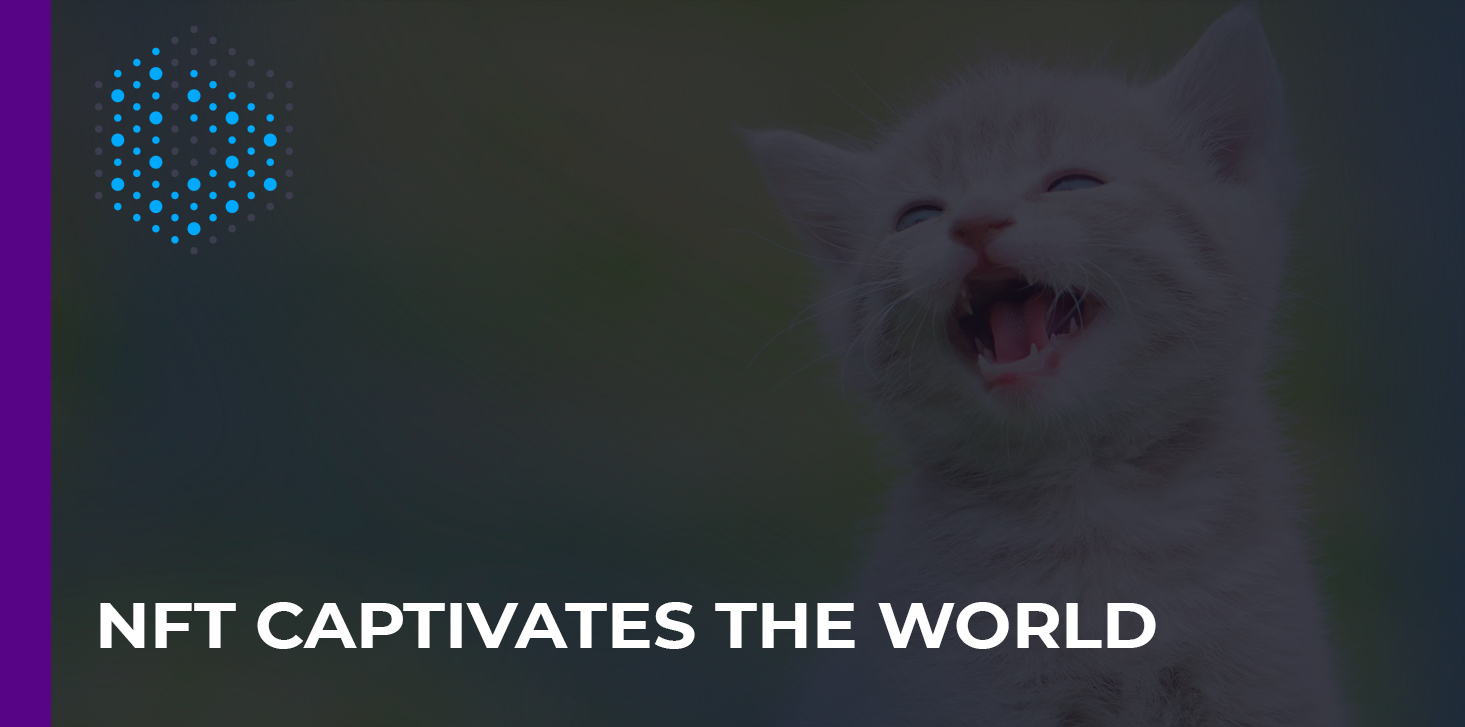5 sectors where NFT is growing in popularity
Since the end of 2020, non-exchangeable tokens have gained huge popularity and increased in price, mainly due to the promotion of popular artists. An industry that has remained untouched is now completely changing the world as we know it, increasing the number of cryptocurrency use cases in a decentralized future.
NFT captivates the world
While many people are still trying to figure out whether or not to buy Bitcoin, others are already spending millions of dollars on images .jpeg, in the hope of increasing their value in the future. Are they either crazy, or is this industry completely changing our world? To many futurists and innovators, the latter seems inevitable. NFTs have already become part of many industries, revolutionizing them faster than cryptocurrency over the past 10 years.
Let’s delve into 5 industries where we can expect a lot of interesting things to happen with NFT in the near future.
Artistic art
Since collectibles were the very first application of NFT in 2017 (Cryptokitties), it is quite normal that we are now seeing massive use of NFT by artists of any background. This is especially true for paintings and digital art. Many traditional artists have finally found an audience that is willing to invest in unique digital works because they believe they have the potential to grow in the future.
Artists such as Fewocious, Trevor Jones, Ekaitza, Beeple, and many others have become celebrities on the art scene, and many find it impossible to understand how these seemingly useless works are worth tens of millions.
Luxury Industry
Supply chain management is another sector where NFTs will become increasingly important. We are currently seeing huge markets for counterfeit goods that sell for only a small fraction of their retail price. This damages luxury brands and damages their reputation among buyers.
While some blockchain projects, such as VeChain and Omisego, are already trying to host luxury goods authentication services on the blockchain, NFT seems to be a better, more efficient, and simpler solution to solve this problem. When users buy an original product, they can simply get an NFT, requiring authentication of the product in case it is resold in the future.
Entertainment industry
The entertainment sector is probably the industry that has the most opportunities in the future, as it is set to optimize a variety of processes. NFTs can be sold as tickets to events, passes to certain places, and even events that we can only vaguely talk about.
The opportunity to turn NFT into experimental products will be celebrated in the next few years as more and more people move away from traditional products and towards a productive, community-driven experience that can be authenticated and demonstrated with non-interchangeable tokens. After all, status plays an important role for every generation, and NFTs help younger generations bring it to the blockchain level.
Real Estate industry
While cryptocurrency prices have certainly prompted many people to explore real estate investments, not many are aware of the Metaverse. Digital worlds are being created before our eyes, and digital land is being sold on NFT platforms such as OpenSea, Raible, and others.
Digital land or virtual real estate is simply a place in the virtual world that attracts the attention of users for collaboration, creativity, and communication. Platforms like Decentraland, CryptoVoxels, and Sandbox seem to be the three most popular virtual worlds, and as of this writing, lands in key positions are selling for hundreds of thousands of dollars. This, of course, is only possible if there is proof of ownership, since the land cannot be copied or seized on a decentralized shared platform.
Advertisement
Finally, advertising is also an industry that NFT is actively transforming. More precisely-marketing. Big influencers and sports teams use their audience to create NFTs that open up their brand to a new audience, namely tech nerds and bitcoiners. And while this may sound pretty funny to many, the truth is that it works really well.
Take, for example, NBA Topshots. The organization sells basketball moments for incredible amounts of money, drawing attention to its brand through the lens of investment. This opens up the sport to a new audience, and further connects the world of traditional sports with the future of blockchain-based collectibles.
